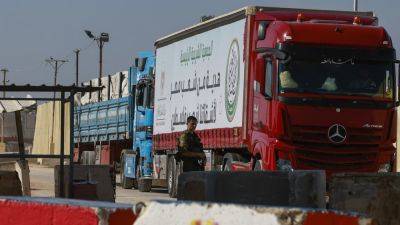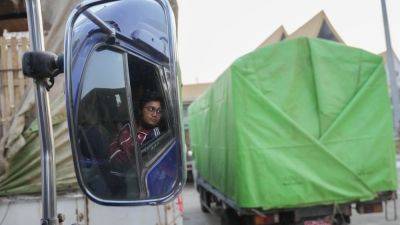Red Sea crisis could lead to global tanker shortage, Kuwait Petroleum CEO says
HOUSTON — The crisis in the Red Sea could lead to a shortage in the global tanker fleet if disruptions persist for another six months, the CEO of Kuwait Petroleum Corporation told CNBC.
Houthi militants have been striking commercial shipping in the Red Sea since November in support of Palestinians as Israel wages war in Gaza. The attacks have forced many container shipping and tanker companies to divert traffic around the Cape of Good Hope in southern Africa, adding time and cost.
"One of the things I think we may be concerned about is if this continues for another six months, that we will not have perhaps the tanker fleet available to continue to go around," Shaikh Nawaf al-Sabah said of the global fleet during an interview at the CERAWeek by S&P Global energy conference.
KPC has diverted a substantial amount of production around the Cape during the crisis, al-Sabah said, declining to provide specific numbers. The company is continuing to ship through the Red Sea and is making decisions on which route ships should take on a daily basis, he said.
"We maintain a strategic tanker tanker fleet for these types of reasons," al-Sabah said. "We're comfortable that we can supply our customers in the quantities that are required on time without issue, but I don't know how many other producers have that strategic vision."
Al-Sabah does not see a risk of Middle East tensions leading to a conflict that could disrupt crude supplies in the wider region. The Persian Gulf has faced numerous wars but the only time Kuwait has been unable to ship was during Iraq dictator Saddam Hussein's invasion of the country in 1990, he said.
"I don't see a supply fear," the CEO said. "I am confident that the industry and the system is well equipped to handle






